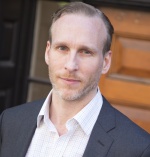Wednesday, January 21, 2015
 by Michael Hamill Remaley, SVP, Public Policy & Communications
by Michael Hamill Remaley, SVP, Public Policy & CommunicationsThis piece was originally published as the feature article for the January 2015 issue of the New York PhilanthroPost Policy Edition.
I listened to President Obama’s State of the Union address last night intending to write about the implications for the philanthropic sector. There were, as there always are, too many relevant issues to list. Whether you are a funder concerned about education, health, workforce development, women and girls, international grant making or countless other ways our sector is committed to improving the world, one can hardly watch such a sweeping speech without hearing in every sentence a policy implication for the work of philanthropy. But what surprised me the most was what was absent: a discussion of poverty.
Instead, there was a relentless focus on the middle class. The entire speech revolved around the idea of “middle class economics” and providing middle class Americans with a greater sense of security. The word poverty was uttered only once — in reference to “extreme poverty” in developing nations that contributes to compromised health systems that makes us vulnerable to diseases like Ebola. The word “poor” was not uttered. “Low-income” was said once, and it was paired with the “middle class” as being the beneficiary of the President’s proposed $3,000 per year childcare tax cut. To be clear, many of the proposals put forth by the President would directly benefit the working poor in the United States. Paid sick leave, equal pay for equal work, guaranteed overtime, higher minimum wage, workforce training, free community college, and many other ideas in the speech are policy proposals that a great many funders working on poverty have long supported and would be important achievements.
But why are the poor in America being left out of the conversation?
High numbers of Americans still seek out food pantries and live in shelters. Stagnant wages affect not just the middle class, but the poor, too. Why has our political rhetoric — the language that sells our collective hopes and dreams — stopped aspiring to end poverty?
Sure, there are some in politics who say that the poor in America aren’t really poor, not like “really poor” people in developing nations or those living in “extreme” poverty in places far away. I think the problem is something else. Social science research indicates that most Americans, regardless of their income, see themselves as “middle class.” So when the President and his Republican colleagues talk about their priorities, they are talking about “all of us” — except the vernacularly tiny fraction at either end of the end of the economic spectrum. Unfortunately, the numbers at either end aren’t tiny at all. The poor are many, and the resources held by the top are staggeringly large and growing by the minute.
Language that ignores that fact denies reality. You can’t erase poverty by not talking about it.
I am proud to say that the philanthropic sector — whether it is our partners at Philanthropy Roundtable or the great number of progressive funders across the New York region — have never lost sight of the fact that poverty in America exists. We focus on the poor in our daily conversations. My question to the philanthropic community is this: What should we be doing to ensure that Washington doesn’t lose sight of the poor people in our communities? Poverty in America has not disappeared, even if our politicians don't want to mention it.
